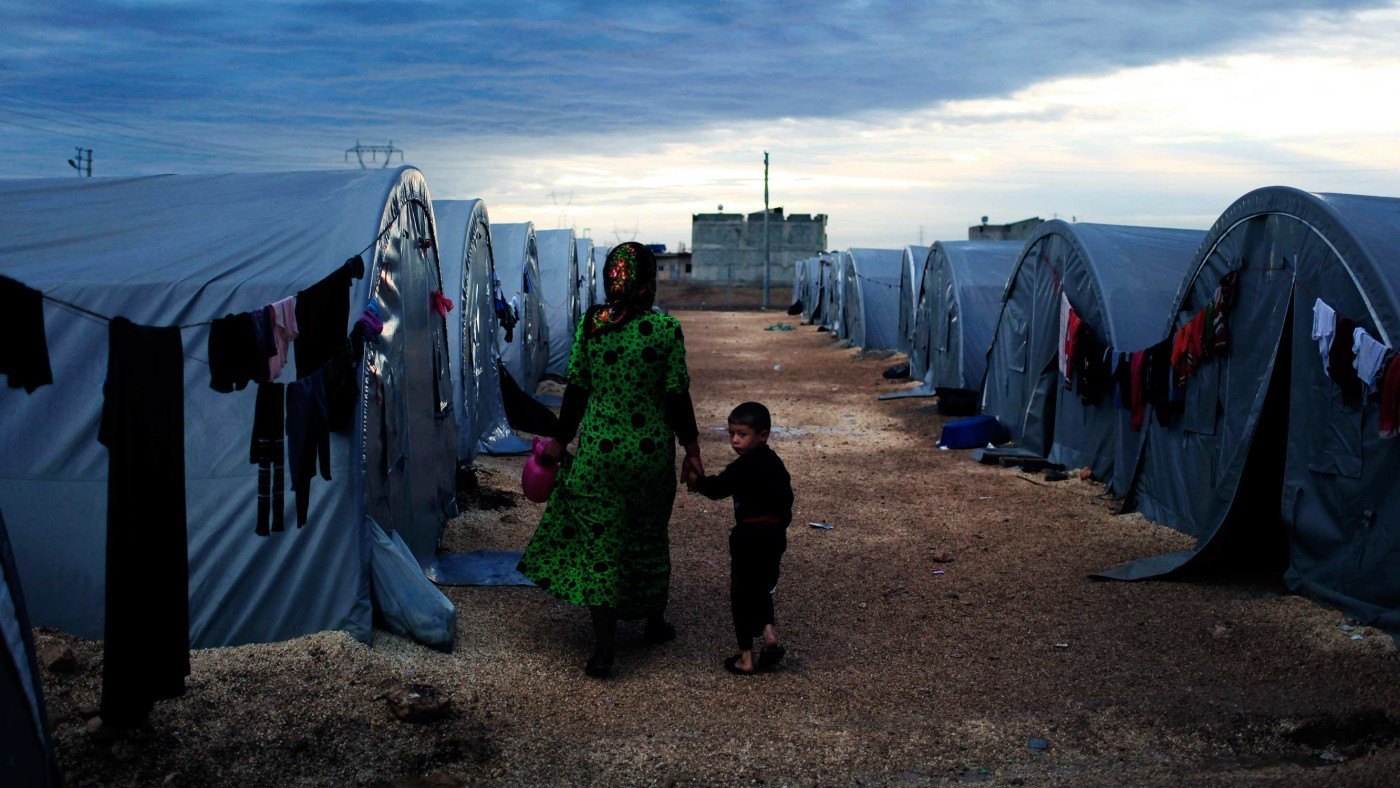The Syrian refugee crisis continues to worsen. Winter weather is creating new challenges for the huge numbers of people fleeing their homes, making this tragic international situation even uglier. Recent images of severe starvation have been circulating throughout the world, providing stark evidence that time is running out for many refugees. More needs to be done now.
Unfortunately, the U.S. government is dragging it’s feet, and preventing Americans from helping.
Our elected leaders may be unwilling to help these Syrian refugees, but they should at least allow Americans citizens to privately sponsor them.
Aid is valuable, but sending rations and care packages is not enough. The only way to truly help refugees is to accept them into our country with open arms. The idea of a safe zone — which no presidential candidate has been able to define—would likely require the U.S. military to ensure a secure area in Syria. This is not only unrealistic, but also counterproductive. As David Bier, the Director of Immigration Policy at the Niskanen Center, has illustrated, safe zones have a storied history of failure. The United Nations High Commissioner on Refugees adamantly agrees.
Unfortunately, according to the U.S. refugee law, only a certain amount of refugees can be admitted each year, even if the refugees are being fully sponsored by independent organizations and individuals.
How can people effectively help those in need when onerous and unnecessary laws make the most beneficial charity illegal?
The proposed maximum for refugee admissions for the 2016 fiscal year is 85,000. But according to the United Nations High Commissioner for Refugees, there are well over 4.5 million registered Syrian refugees in the region, with a total of 13.5 million Syrian people in need of humanitarian assistance overall. In other words, even if America admitted the maximum 85,000 refugees next year, and every single one of them were Syrian, we would have only helped 0.0189 percent of the 4.5 million refugees in need.
Our fellow humans cannot wait indefinitely for the American government’s lackluster and delayed assistance. The state moves at a sluggish pace, and there’s no sign of reform on the horizon. So why not allow individual citizens at the grassroots level to provide assistance?
This would allay the funding concerns of many of our lawmakers, like Senator Jeff Sessions of Alabama. Sessions recently penned a letter to his colleagues stressing the need to contest President Obama on any refugee resettlement motions, and demand Congressional approval for his proposed appropriations.
But, Sessions also argued fallaciously that even with private refugee sponsorship, allowing more refugees into the U.S. will cost us down the road through “wages flat-lining”.
This is incorrect. The notion that immigration causes wage stagnation is a myth that was debunked in a comprehensive study, by Mette Foged of the University of Copenhagen and Giovanni Peri of UC Davis. They argue that because of the immigration of less-skilled refugees, less educated native workers are forced to strive for “more complex occupations”. In fact, refugee immigration has a positive effect on many key labor statistics, including wage and employment rates.
So if Sessions is truly concerned about the cost to the taxpayer of accepting refugees, then he should be convincing his colleagues to support more private sponsorship. The compassion and generosity of the American people could be fully harnessed and, to the Senator’s delight, the government wouldn’t have to foot the bill.
Furthermore, despite preposterous claims that the refugee camps are “really quite nice”, the squalid and “utterly inhumane” environment leaves many desperate people with nowhere to turn, making them vulnerable to radicalization.
Terrorist groups like ISIS take advantage of these refugees, promising them protection and vital resources for their families. In other words, keeping Syrians in refugee camps only helps terrorist groups recruit more efficiently.
So in reality, admitting more refugees would both improve the economy and help combat terrorism.
Most importantly, our fellow human beings need us now more than ever, and the moral reasoning for allowing private sponsorship of Syrian refugees is overwhelming.
In the end, it seems as if the government is unwilling to do what is necessary to help the people who need it most. Millions of displaced Syrian refugees face the prospect of death, whether through famine or bloodshed, and they don’t have time for American lawmakers to procrastinate.
Americans regularly profess the moral aptitude and exceptionalism of this great nation. Now is the time for us to live up to our humanitarian principles by providing sanctuary for more refugees. If the government is unwilling to show ethical leadership and accept more refugees, then they should at least step aside and let the American people privately sponsor those who need our help the most.


